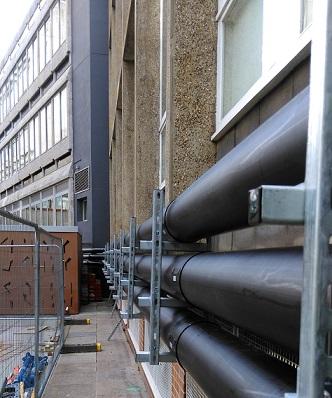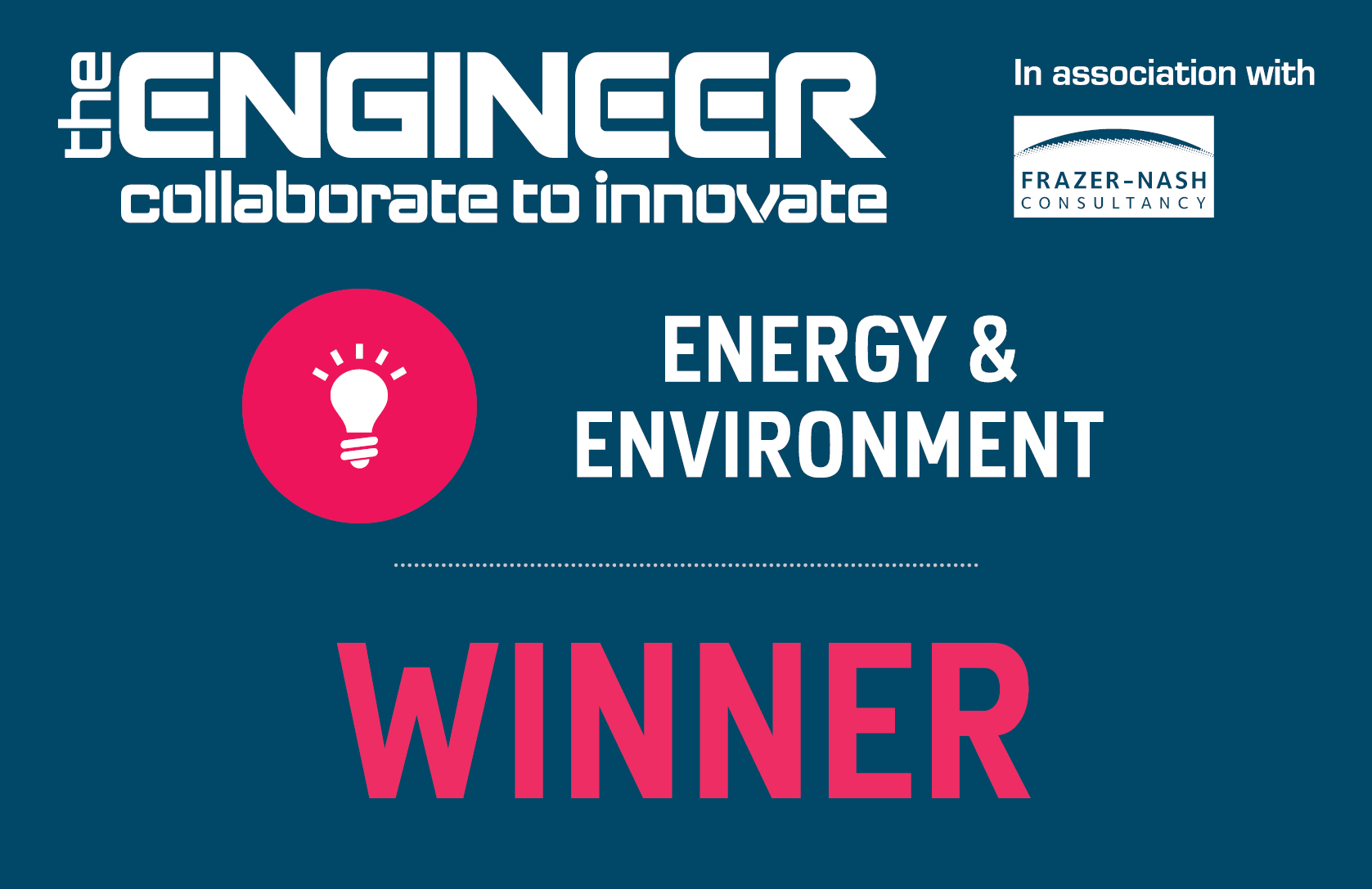Heat Sharing Networks™ – Balanced Energy Networks – BEN
Innovate UK awarded £2.9m towards a £4m ICAX led consortium to build a Balanced Energy Network at London South Bank University to demonstrate innovations in integrated energy supply chains.

The two year project, which started in in May 2016, follows on from an earlier feasibility study financed by Innovate UK. The aim of the research into innovations was to encourage cross-sector supply chains to aim to deliver integrated energy solutions at different scales to meet the many energy systems challenges of achieving a low-carbon economy by 2050.
The DECC has the goal of seeing 15-25% of the UK's growing space and water heating demand delivered through heat networks, in place of the current 2% capacity.
The Balanced Energy Network incorporates a heat sharing network which is designed to provide a more cost effective, flexible, and scalable alternative to conventional district heating network technology. Heat sharing networks transfer warmth via piping circuits between buildings at near ground temperature and extract it via heat pumps in each building.
This radical innovation will allow the integration of diverse energy systems through the recovery of low grade waste heat, delivery of simultaneous heating and cooling, links to heat storage in boreholes and provides lower installation costs by making use of existing infrastructure, none of which are possible with conventional high temperature heat networks.

BEN Consortium
The BEN Project started as a collaboration between ICAX Ltd and LSBU, in which ICAX provided the technical and industry expertise, and LSBU provided the research expertise and the platform from which to disseminate project results. The BEN Consortium has expanded to integrate further supply chain elements to increase the energy security, lower costs and lower carbon emissions, including the development of high temperature heat pumps, organising electricity aggregation, using Demand Response to shift electric loads away from peak hours and developing a Fuel Cell Calciner.
High Temperature Heat Pumps
The BEN Consortium has developed heat pumps that can deliver high temperatures, and can replace gas boilers in existing buildings – without the need to replace existing heat distribution systems.
This project demonstrates how Heat Sharing Networks represent a scalable and adaptable answer to meeting the UK's growing demand for efficient space and hot water heating. The project does not release carbon dioxide – or any other gas – on site: it provides an answer to the growing problem of urban air pollution.
Demand Response
Upside Energy, a demand side response aggregator, joined the project to allow demand response to discourage the use of electricity at times of peak consumption and encourage consumption at times of surplus supply to the grid.
Thermal Energy Storage
BEN uses thermal energy storage from Mixergy in conjunction with demand response to provide domestic hot water by day from surplus electric power available by night.
Fuel Cell Calciner
The project also employs a fuel cell calciner developed by Orginen Power and Cranfield University to generate electricity and heat in a way that absorbs CO2 from the atmosphere.
The Intranet of Heat
This new heat infrastructure is the birth of an "Intranet of Heat". The Intranet of Heat enables the exchange of information about sources and needs of heat – and cooling – and then allows heat exchange from those buildings with surplus heat to those in need of heat.
For further details on the BEN project and its consortium members see Balanced Energy Networks.
See Ground Source Heating See Ground Source Cooling See Ground Source Energy
See also: Economic Renewable Energy


